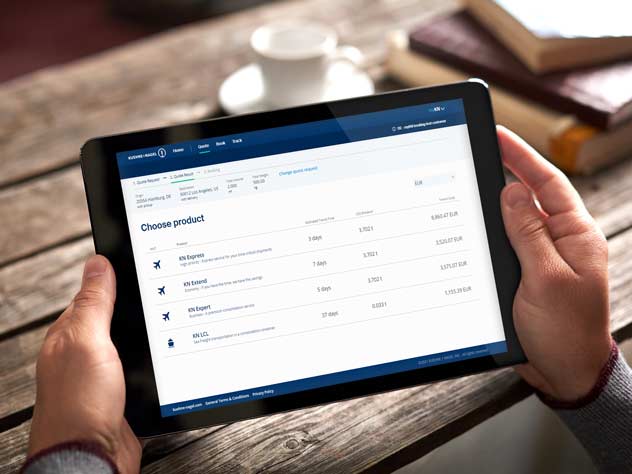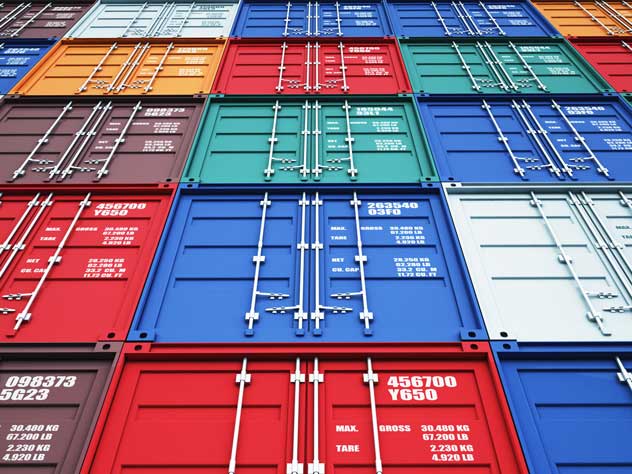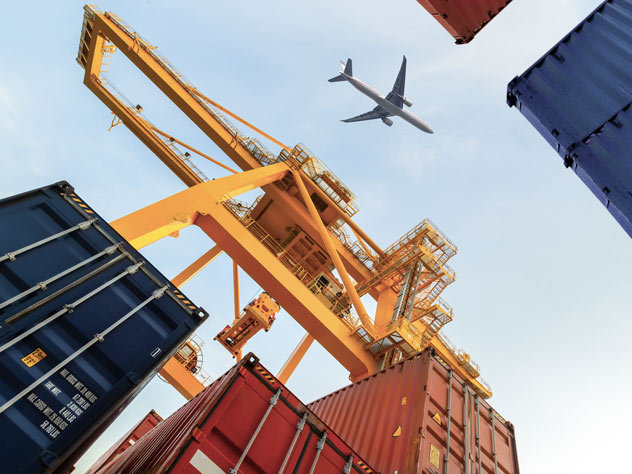Buying and selling goods in the international trade system can often be complicated with responsibilities, cost and risk to all parties needing to be determined.
To help you in the import and export of trade, the International Chamber of Commerce (ICC) introduced the International Commercial Terms (Incoterms®), which act as the world’s essential terms of trade for the sale of goods. Whether you are completing a purchase order, packaging and labelling a shipment, or preparing a certificate of origin, these regulations have become part of our daily language of trade and are there to guide you.
Since the first publication of the rules in 1936, the ICC has been maintaining and developing them ever since. To help prepare businesses for the next century of global trade, the newest edition, Incoterms® 2020, came into effect on 1 January 2020 and should be referenced going forward.
The Incoterms® rules feature a series of three-letter trade terms which all have very precise meanings for the sale of goods around the world.
Download and overview of Incoterms® 2020
Rules for any mode or modes of transport:
EXW – Ex Works (named place of delivery)
Often used when making an initial quotation for the sale of goods without any costs included, EXW means that the seller makes the goods available at their premises or at another named place (works, factory, warehouse etc). The seller does not need to load the goods on any collecting vehicle, nor does it need to clear the goods for export.
FCA – Free Carrier (named place of delivery)
FCA can have two different meanings, each with varying levels of risk and cost for the buyer and seller. FCA (a) is used when the seller delivers the goods, cleared for export, at a named place which is their own premises. FCA (b) is used when the seller delivers the goods, cleared for export, at a named place which is not their premises. In both instances, the goods can be delivered to a carrier nominated by the buyer, or to another party nominated by the buyer.
CPT – Carriage Paid To (named place of destination)
Under CPT the seller pays for the carriage of goods up to the named place of destination.
CIP – Carriage and Insurance Paid to (named place of destination)
Similar to CPT with the exception that the seller is required to obtain minimum insurance for the goods while in transit.
DAP – Delivered at Place (named place of destination)
The seller is deemed to have delivered when the goods are placed at the disposal of the buyer on the arriving means of transport and ready for unloading at the named place of destination. Under DAP terms, the seller needs to manage all risks involved in bringing the goods in.
DPU – Delivered at Place Unloaded (named place of destination)
This Incoterm requires that the seller delivers the goods, unloaded, at the named place. The seller covers all the costs of transport (export fees, carriage, unloading from main carrier at destination port and destination port charges) and assumes all risk until arrival at the destination place.
DDP – Delivered Duty Paid (named place of destination)
The seller is responsible for delivering the goods to the named place in the country of the buyer, and pays all costs in bringing the goods to the destination including import duties and taxes. The seller is not responsible for unloading.
Rules for sea and inland waterway transport:
FAS – Free Alongside Ship (named port of shipment)
The seller delivers when the goods are placed alongside the vessel (e.g., on a quay or a barge) nominated by the buyer at the named port of shipment. The risk of loss of or damage to the goods passes when the goods are alongside the ship, and the buyer takes on responsibility for all costs from that moment onwards.
FOB – Free on Board
The seller delivers the goods on board the vessel nominated by the buyer at the named port of shipment or procures the goods already so delivered. The risk of loss of or damage to the goods passes when the goods are on board the vessel, and the buyer takes on responsibility for all costs from that moment onwards.
CFR – Cost and Freight
The seller delivers the goods on board the vessel. The risk of loss of or damage to the goods passes when the goods are on board the vessel. The seller must contract for and pay the costs and freight necessary to bring the goods to the named port of destination.
CIF – Cost, Insurance and Freight
The same as CFR with the addition that the seller must also obtain minimum insurance cover against the buyer’s risk of loss of or damage to the goods during the carriage.
Differences between Incoterms® 2010 and 2020:
The Incoterms® FCA (Free Carrier) now provides the additional option to make an on-board notation on the Bill of Lading prior loading of the goods on a vessel.
The costs now appear centralized in A9/B9 of each Incoterms® rule.
CIP now requires at least an insurance with the minimum cover of the Institute Cargo Clause (A) (All risk, subject to itemized exclusions).
CIF requires at least an insurance with the minimum cover of the Institute Cargo Clause (C) (Number of listed risks, subject to itemized exclusions).
The Incoterms® rules Free Carrier (FCA), Delivered at Place (DAP), Delivered at Place Unloaded (DPU) and Delivered Duty Paid (DDP) now take into account that the goods may be carried without any third-party carrier being engaged, namely by using its own means of transportation.
The rule Delivered at Terminal (DAT) has been changed to Delivered at Place Unloaded (DPU) to clarify that the place of destination could be any place and not only a “terminal”.
The Incoterms® 2020 now explicitly shifts the responsibility of security-related requirements and ancillary costs to the seller.
Useful information
The Incoterms® do not constitute a complete contract of sale, but rather become a part of it. For its application, the following structure should be used:
“[The chosen Incoterm® rule] [Named port, place or point] Incoterms® 2020”
Example: “CIF Shanghai Incoterms® 2020” or “DAP 10 Downing Street, London, Great Britain Incoterms® 2020“
If there is no year stated in the Incoterms® then the following applies:
until December 31st 2019 the Incoterms® 2010 apply.
from January 1st 2020 the Incoterms® 2020 apply.
If a different year is stated, e. g. Incoterms® 1980, then respective terms apply.
For more details, please refer to the ICC official website: https://iccwbo.org.
Download and overview of Incoterms® 2020











